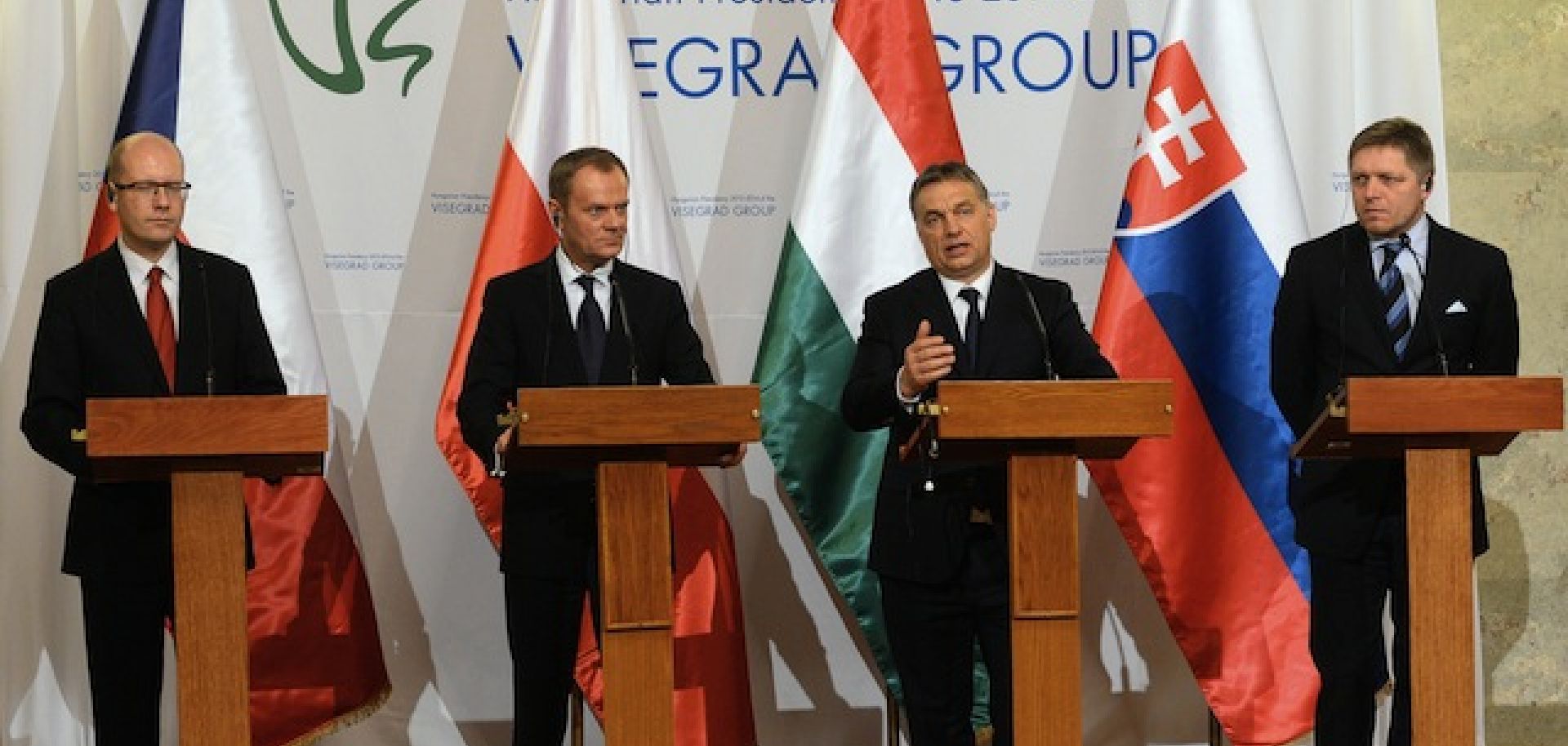ASSESSMENTS
Ukraine's Crisis Gives New Impetus to the Visegrad Group
Mar 7, 2014 | 16:23 GMT

(ATTILA KISBENEDEK/AFP/Getty Images)
Summary
Since the beginning of the decade, concerns about political fragmentation in the European Union, the emergence of a more assertive Russia and the commitment of NATO and the United States in Central Europe have given new life to the Visegrad Group. Foreign ministers of the group — a platform of political and military cooperation among Poland, the Czech Republic, Slovakia and Hungary — met with their counterparts from the Nordic and Baltic states in Narva, Estonia, on March 6-7 to discuss ongoing issues, including the situation in Ukraine. Foreign ministers and deputy foreign ministers from Poland, the Czech Republic, Slovakia, Hungary, Denmark, Finland, Iceland, Norway, Sweden, Latvia, Lithuania and Estonia condemned the violation of Ukraine's sovereignty by Russia.
The events in Ukraine confirm that the factors driving the establishment of the Visegrad Group are still in place, but the group is still limited in what it can accomplish. Different threat perceptions, bilateral tensions and conflicting priorities continue to undermine the cohesion of the group.
Subscribe Now
SubscribeAlready have an account?
